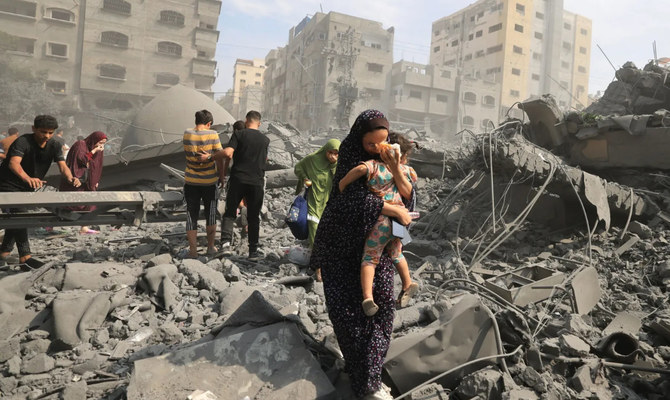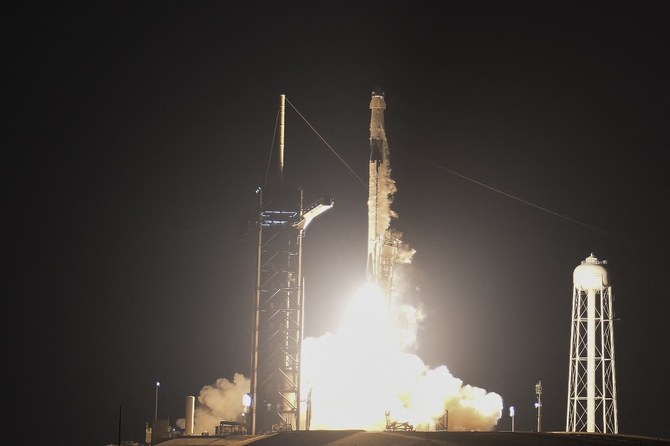
One of the most difficult challenges for leaders in the midst of a raging war is to develop a vision of peace for its aftermath, when the bloodshed and destruction have ceased, and by that to avert their recurrence. Moreover, it is the task of political leaders to not only have a post-war plan, but also to bring on board their societies, which are by now traumatized and living in fear.
In the face of the horrors we have been witnessing since Oct. 7 on both sides of the border between Israel and Gaza, it might sound naive, almost outlandish, to talk about a comprehensive resolution of the Israeli–Palestinian conflict, even beyond Gaza. But this is what responsible and courageous governments should do, and without delay.
For now, the message from Israel is that the war will not end until it has destroyed Hamas. A spokesperson for the Israeli military repeated that message this week, saying: “The mission (inside Gaza) is to engage with Hamas and simply to dismantle each and every Hamas stronghold that is buried. The directive is definitely to kill or capture all the leaders of Hamas.” Whether this is an achievable objective is a moot point; besides, what does it mean to destroy Hamas, since it is also a political movement, and more importantly an ideology, that can be defeated only by an alternative and more appealing one, which gives answers to their needs?
The reason there is already an urgent need to address the future of Gaza, and without losing sight of the bigger picture of Israeli–Palestinian relations, is that in the absence of any constructive plan, the conduct of the war threatens to be dictated by reactions to events and political pressure, and not by long-term strategic thinking.
For instance, earlier this week Israeli Prime Minister Benjamin Netanyahu not only ruled out a general ceasefire, which is a real worry considering the death toll among Gaza’s civilians, children in particular, but when asked who should govern the enclave at the end of the war, he also told America’s ABC News that “Israel will for an indefinite period … have the overall security responsibility (in Gaza), because we’ve seen what happens when we don’t have that security responsibility.”
A long-term Israeli occupation of Gaza could and should not be an option.
Yossi Mekelberg
This is already a change to Israel’s war objectives as declared immediately after Hamas’s attack last month, but it is vague about exactly what “security responsibility” means. Was he seriously suggesting reoccupying the Gaza Strip, 18 years after Israel withdrew and dismantled its settlements there? This would be a folly that would only prolong the conflict, and increase friction between Israel and the people of Gaza, the rest of the Palestinians, and the region. It also follows another dangerous development in which a number of far-right politicians, including from Netanyahu’s coalition, have called for rebuilding the settlements there as a security guarantee.
Neither another occupation of Gaza nor a rebuilding of settlements is plausible, and such suggestions need to be nipped in the bud. Hence, not surprisingly, US Secretary of State Antony Blinken was quick to reiterate while attending a meeting of G7 foreign ministers this week in Japan that Washington opposes both Hamas rule and an Israeli reoccupation of Gaza. He also warned against any future blockade or siege, as well as any plan to reduce its territory. One must hope that this message was heard clearly by Israel’s decision-makers.
By the time the last bullet in this war is shot and the inevitable and desperately needed cease-fire is called, two devastated and traumatized societies, mourning their dead, living in fear and having no trust in the other side, will be left to lick their wounds. Hardly an ideal situation in which to talk peace, but also one that underlines the need for new thinking about Israeli–Palestinian relations, and for a new leadership to emerge in both societies.
The spectacular, appalling and horrific collapse of the old order requires a departure from previous perceptions that occupation and blockade provided security. How, then, should the fundamentals of the Israeli–Palestinian conflict be resolved? What methods of resisting the occupation are legitimate, and which should be condemned outright? And who are the domestic and regional actors who could play a positive role in finding a peaceful settlement? Potential spoilers of such a settlement could be offset by including them in any future peace process.
There are no winners from letting this conflict fester, only losers.
Yossi Mekelberg
A long-term Israeli occupation of the Gaza Strip could and should not be an option. Certainly, Egypt cannot be expected to take sole control of Gaza, even on an interim basis, as Cairo has no desire to assume this role. In the long run, only the return of a Palestinian governing body that is elected by the Palestinian people, and unifies the West Bank and the Gaza Strip could be both sustainable and legitimate, and have the competency to negotiate a political settlement with Israel that will guarantee both peoples’ security and prosperity.
The previous combination of a blockade, sustaining Hamas, and a peculiar model of poverty and misery management has not worked, either for Israel and even less for the people of Gaza. The PA in its current state cannot march into Gaza supported by Israeli bayonets. As a consequence, there is a need for the international community to shoulder responsibility, at least in the interim period, with a strong regional presence, to ensure reconstruction of the territory, and to build political and municipal structures that will then merge with those in the West Bank, after 16 years of being run separately.
But it cannot stop there, and what will be needed is a future Israeli government that is capable of internalizing that good fences, even if they cost a billion dollars, do not necessarily make good neighbors, and that the only path to long-term peace, security and prosperity is one based on a two-state solution that ensures everyone’s rights, including that of self-determination.
To this end, the 2002 Arab Peace Initiative could still be a highly constructive basis. In one way or another it should be an inclusive peace process that allows the wider Middle East to become stakeholders and guarantors, and by that also marginalizes the persistent spoilers of such an agreement. The shocking carnage we have seen over the past month should also send a clear message that there are no winners from letting this conflict fester, only losers, and if left unresolved, it will spread like wildfire.
• Yossi Mekelberg is a professor of international relations and an associate fellow of the MENA Program at Chatham House.
X: @YMekelberg











